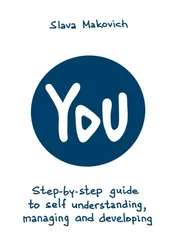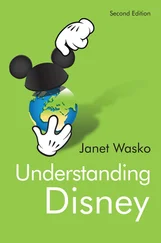Chapter 2. What Do the British Know About Their Own History?
In order to understand the people of another country, you may not need to study their history in detail, but you need to know about their own idea of their past. In the last twenty years in Russia, efforts to re-assess your history and understand how to interpret the seventy-odd years of Soviet rule have been discussions at the very front of public debate. The anguish of such discussions contrasts with the seemingly steady march of events which have shaped British history. But debates about our past are taking place in Britain which should be of interest to those who are re-examining Soviet 'history'. Even the differences are revealing. The British (apart from those in Northern Ireland) live in a country which has not been successfully invaded for 900 years. Monuments to our past cover our countryside: bronze age burial mounds, Roman walls, churches from the ninth century onwards, castles, palaces and simple country homes are all part of a landscape we take for granted. Because much of our building was in stone or brick it has survived better than the predominantly wooden buildings in Russia. Even without wars there would be more visible remnants of our past than yours. That preserved past affects the way that millions of people in Britain, even those without much education, respond to our history.
How much do most of us know of 'the facts' of our history? 'Rather less than can be written on the back of a postage stamp,' said one friend tartly. The problem is partly that we do not know quite what to teach. History teaching in our schools has never been openly ideological in the Soviet sense, but unspoken ideologies have shaped the story told to children; over the decades the accounts of what happened have been influenced by 'what is happening now'. As a child I was expected to know a basic' chronology of events', such matters as 'reasons for the (seventeenth century) Civil War' and, later, an analysis of our relationships with other countries. My older children concentrated on economic and social history: they learnt about how we lived in different centuries, they studied the growth of industry and transport, they examined medical facilities in Victorian times. My younger children were taught that 'history' was always the interpretation of evidence, and that therefore they must examine the evidence. So they investigated archaeological sites, studied census statistics and read conflicting reports of notable events in order to appreciate that the truth can never be fully known. Unfortunately, this taught them to be sceptical without an adequate basis of facts that need to be known before we can criticise such facts for being inadequate.
Recently the emphasis has been on the history of the twentieth century, especially the World Wars, but often without adequate explanation of the context within which those wars look place. Perhaps these subjects were selected because earlier events are too obviously not the history of some of our immigrants. They have not inherited the country and its history as I and other indigenous 'white' people have; so choosing to study the world wars is a way of being inclusive. Unfortunately, (he study of war and overwhelming suffering can become a topic for nostalgia by those who have not had to endure violence and death.
Each generation of children has had to think about history in different ways. History teachers are constantly involved in methodological discussions, and somehow from between the cracks in their debates emerges a 'story of Britain' which is crude, simple and not very accurate, but which goes something like this:
After the Stone Age, Bronze Age, Iron Age, Romans, Saxons and Danes, England became England. William the Conqueror invaded England from France in 1066 (this is the date that everybody knows), killed King Harold and became Our King. He built many castles and ordered his officials to compile a list of all the property in England which was written into a book called the Domesday Book. In the Middle Ages we built beautiful churches, started limiting the power of the King with the signing of Magna Carta in 1215, died in millions of the Black Death in the 1340s, and beat the French at Agincourt in 1415, (though we forget that the French won the war). In the sixteenth century we had Henry VIII with his six wives. He abolished the Pope as the head of the Church in England and made himself head of the new 'Church of England' instead, which was generally taken as a popular move. Under Queen Elizabeth we fought and beat the Spanish and enjoyed the plays of Shakespeare. When Elizabeth died the King of Scotland became also James I of England (1603); we captured Guy Fawkes just before he attempted to blow up the Houses of Parliament in 1605, an event which the English population celebrates every year on the fifth of November with big fires and effigies of Guy Fawkes. Under Charles I we fought a bitter Civil War which was partly about the rights of Parliament, partly about the ways in which the Church should or should not have power over our lives. A group of serious men executed the king after a careful trial in 1649. For ten years we lived in a Commonwealth and Republic under Cromwell when conditions were gloomy and people were discouraged from enjoying themselves. In 1660 powerful men restored the monarchy - on conditions. Charles II accepted those conditions, more or less, but his brother, James II made efforts to restore Catholicism to what was now a deeply Protestant country. He was forced to abdicate and his son-in-law, William of Orange became King in 1688, a more-or-less peaceful change of government which we call the 'Glorious Revolution. Thereafter, major power passed into the hands of Parliament and was steadily enshrined in law. In the eighteenth century we began to establish a large overseas empire, and invented new scientific, agricultural and industrial processes such as the steam engine. These were the basic for the great Industrial Revolution: we became the first industrialized nation. When the French started a French Revolution we opposed them because we were already more politically advanced. We beat Napoleon, heroically at sea, and in several campaigns on land. During the nineteenth century, especially during the long reign of Queen Victoria (1837-1901) we extended our Empire even further, produced brilliant men whose science changed the world - like Faraday and Darwin -refined our sophisticated Parliament, increased Britain's riches ... and went into battle in 1914 with all banners flying...
Doubts
Or did we? At this point the triumphant story falters. Perhaps it is already too close to the present day, even though it was nearly one hundred years ago. Memories of the First World War are preserved and cherished and brooded over with horror in Britain. One fact which challenged the complacency of the richer classes in the early twentieth century was that many of the conscripts in the First World War had to be rejected for malnourishment and ill-health. The social consequences of nineteenth century industrialisation had been horrific, a fact which could not be ignored when the authorities looked at the physical fitness (or lack of it) of the conscript soldiers. Trench warfare became our image of futile and disgusting death on all sides. Although it is true that we were on the winning side in the First World War, a huge proportion of that generation of young men had been killed, while the surviving soldiers returned to unemployment and even hunger.
Unlike Russians, we cannot forget the First World War. Every town in Britain and almost every village erected a War Memorial on which were engraved the names of those from that place who had been killed. (In about six British villages no one was killed - everywhere else had its Memorial in some central place where people could gather together.) 11th November 1918, the day when the war ended, was chosen to be the day dedicated to remembering those killed in the war. 'Remembrance Day' is approximately equivalent to your 9th May, but our ceremonies are quiet and sober since we do not celebrate victory but remember those who died - including those on the other side.) I have been told there are no memorials in Russia to honour the dead of the First World War.
Читать дальше












